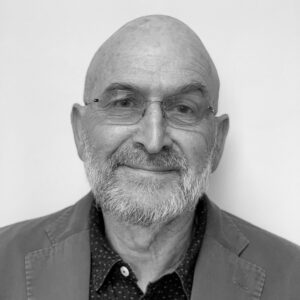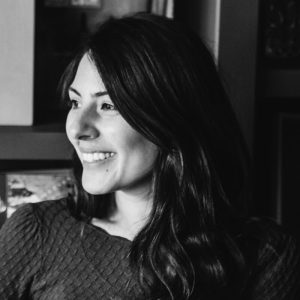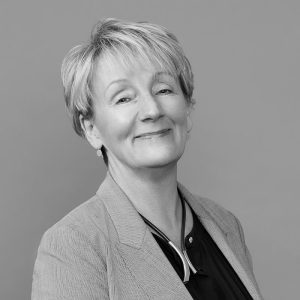Programs
2025
AALI
Learning Lab Events
Case In Point Intensive and Accreditation
Tue 25 – Sat 29 November 2025
(5-days)

Case-In-Point Intensive and Accreditation
Date: Tuesday 25 – Saturday 29 November (5-days)
Location: Sydney
During the five-day intensive you will work closely with our faculty to build the skills and confidence needed to apply the CiP methodology across a variety of settings.
Following the intensive, you can elect to engage in a comprehensive accreditation process that includes applied learning methods, such as personal and group supervision and coaching.
As the only professional body in the Asia Pacific offering this program, we welcome experienced practitioners or those who have completed our two-day introduction to Adaptive Leadership, as well as previous AALI Masterclasses and Learning labs.
Format and structure:
Working alongside a cohort of practitioners from across Australia, you’ll begin with an immersive, five-day learning phase, where you’ll engage deeply in the CiP methodology through hands-on activities, peer design and practice, and guided discussions.
If you choose the accreditation path, you’ll be supported as you apply your learning in real-world settings, reinforced by structured reflective practice to capture insights and deepen your understanding.
To support your journey, you’ll receive ongoing personal and group supervision, with dedicated coaching to refine your skills. Finally, the accreditation process culminates in an assessment, ensuring you’re fully equipped to integrate CiP confidently into your professional practice.
Timing:
- Start: Tuesday, 25th November 9.30am for 10am start.
- Finish: Saturday 29th November at 3pm.
Investment:
• Intensive: $4,500 +GST
• Accreditation: $3,250 +GST
(Includes morning tea, lunch, afternoon tea and two evening meals, including a program dinner on the Friday night)
We are currently taking registrations for the 5 day Case-In-Point Intensive.
Please secure your spot using the button below.
Maxime Fern and Michael Johnstone
Maxime and Michael (Vantage Point Consulting) are known in the Australian adaptive community for their contributions to the original Harvard Kennedy School program, the Art and Practice of Leadership Development, having taught the program with Marty Linsky and Ronald Heifetz for 15 years. Together, they provide an international consulting service. Past clients include Google, BHP, the Australian Public Service Commission, Bank Intesa San Paolo (Italy), the Australian Institute of Police Management, Cobel Darou (Iran) and the Scottish Government.
Together, Maxime and Michael authored the book ‘Provocation as Leadership’, which is widely recognised for its contribution to the theory and practice of Adaptive Leadership.

Lisa Croxford
Lisa Croxford brings leadership development expertise as an alumna of the Harvard Kennedy School’s Art and Practice of Leadership Development and the Kansas Leadership Centre’s Case in Point program. Her work with AALI includes teaching the Introduction to Adaptive Leadership and participating in numerous AALI gatherings, and V Cafés. Currently, she applies adaptive leadership principles at People Measures and The Meeting Point, weaving these insights into her professional and personal life.
2025 AALI Case in Point Intensive
Full payment
100% payment for the Case in Point Intensive
***When clicking the Pay Now button, you will be directed to the Paypal platform.
Upon payment, you will be redirected back to this website to complete your Case in Point Registration form.
Cancellation policy
- Cancellation prior to 20th August – full refund of all amounts paid
- Cancellation between 21st August and 31st October – refund of all amounts paid less 50% of deposit
- Cancellation after 31st October and before 10th November – refund of all amounts paid less 75% of deposit
- Cancellation after 11th November – no refund
Past Events
Introduction to Adaptive Leadership
Date: Tuesday 25 – Wednesday 26 March (2 days) 9am to 5pm both days
Location: Sydney
The two days are designed for existing or aspiring leadership development practitioners who are interested in incorporating elements of the adaptive leadership framework into their practice. It also welcomes organisational development professionals seeking to deepen their understanding of adaptive leadership concepts.
Format and structure:
Working with other participants from around Australia, you will engage in individual and group activities, discussions, and reflections, as we take an experiential approach to learning about adaptive leadership.
Investment:
$2,250 +GST
(Includes morning tea, lunch and afternoon tea)
Scholarships:
As part of our commitment to supporting greater diversity in the leadership development profession and a diverse and accessible community of practice within AALI, we are offering up to three scholarships (covering program fees) for this 2-day introductory program.
These scholarships will be provided to individuals that would otherwise not be able to attend due to financial reasons. Priority will be given to any Aboriginal &/or Torres Strait Islander people applying, other individuals from diverse backgrounds, those from the NGO sector, and lower income earners e.g., earlier career sole practitioners. If you know anyone that might benefit from a scholarship place, please encourage them to apply and indicate that on the application form.
Facilitators
Cameron Bowles
Cameron is a leadership development practitioner with over 30 years experience in senior roles across international agencies, government, and not-for-profits. He developed adaptive leadership skills at Harvard Kennedy School, Kansas Leadership Center, AALI and CLA (now Adapsys). He specialises in adaptive leadership and helping groups address difficult and complex challenges. Cameron’s clients include DFAT, UNDP, APSC and various governments and universities. His international experience spans the Pacific, Africa, the Middle East, and more. He is a founder of Adapsys in Australia and a partner in the international Adapsys group.
Attiyya Malik
Attiyya is a leadership development consultant and executive coach with deep expertise in complexity, adult development and adaptive leadership. She has worked extensively with senior leaders and executive teams helping them navigate uncertainty, exercise leadership in complex systems and mobilise their organisation for adaptive change. Her work extends across industries, sectors and geographies, supporting organisations globally to build their adaptive capacity.
Advanced Learning Lab
Theme: Holding Steady and Working at the Edge in a Complex and Divided World
There is no doubt that the challenges the world faces are growing, more rapidly than most of us can comprehend, let alone respond to. The complexity and interconnection of issues, with the widening range and intensity of responses, the deepening divides between people and communities, all make the work of leadership more difficult and more important. By its nature our work as leadership development and change practitioners has become more demanding and at times confusing.
- What is our work in this environment?
- How much can we and should we get involved directly?
- What is our own inner work, so we can hold steady and work at the \ our edge?
- Do I know what my limitations are and how do they constrain my capacity to be useful to others?
This three-day learning intensive will explore these questions, and more, and will do so in an experiential manner, drawing on and at times challenging the knowledge, skills and interactions of the participant group. Our goal is to help you reflect on and deepen your practice as a leadership educator, facilitator, coach or change agent, guiding you through exploration, discovery and refection while fostering a sense of community. We’re in this together. There will also be opportunity to practice and examine different facilitation methods – allowing practical takeaways.
Date: Thursday 27 – Saturday 29 March (3 days)
Thursday 27th March – 9am to 7pm
Friday 28th March – 8.30am to 6pm
Saturday 29th March – 8.30am to 5pm
Location: Sydney
The three days are designed for experienced adaptive leadership practitioners looking to deepen their craft and hone their use of the adaptive leadership framework. It also welcomes those who have completed other ‘Introduction to Adaptive Leadership’ events, including the one on the preceding two days.
Format and structure:
Working alongside practitioners from across Australia, you’ll co-create a dynamic learning environment that blends large and small group discussions. Through these interactions, you’ll engage in reflective practice, examining your experiences through a pedagogical lens to deepen your understanding of the adaptive leadership framework. There will be opportunity to share approaches as well as practice specific skills and forms of intervention.
Investment:
$3,250 +GST
(Includes morning tea, lunch, afternoon tea and dinner on Friday night)
Facilitators


Maxime Fern and Michael Johnstone
Maxime and Michael (Vantage Point Consulting) are known in the Australian adaptive community for their contributions to the original Harvard Kennedy School program, the Art and Practice of Leadership Development, having taught the program with Marty Linsky and Ronald Heifetz for 15 years. Together, they provide an international consulting service. Past clients include Google, BHP, the Australian Public Service Commission, Bank Intesa San Paolo (Italy), the Australian Institute of Police Management, Cobel Darou (Iran) and the Scottish Government.
Together, Maxime and Michael authored the book ‘Provocation as Leadership’, which is widely recognised for its contribution to the theory and practice of Adaptive Leadership.
Diana Renner
Diana is a leadership expert, educator, and award-winning author specialising in adaptive leadership and leading in uncertainty. She has worked across multiple sectors in Australia and internationally, including as senior lecturer at Monash University and partnerships with Melbourne Business School, Australian Public Services Commission, and the Australian Institute of Police Management.
Diana co-authored “Not Knowing” (UK Management Book of the Year) and “Not Doing,” translated in over 12 languages. Diana is a committee member of AALI and was the inaugural Chair for three years.
Frances Feenstra
Frances is an experienced leadership development practitioner and an organisational psychologist. She has more than 25 years’ experience, and is a founder and associate director of People Measures.
Known for her focus on diversity and inclusion, Frances was founder and inaugural Chair of The 100% Project, a NFP organisation which aims to increase opportunities for women. She chaired the Advisory Board for the Australian Centre for Research into Employment and Work (ACREW) at Monash University, and was instrumental in the establishment of the Australian Adaptive Leadership Institute (AALI) where she was a board director until June 2023.
THE PARADOX OF PROGRESS: Fostering real learning in a risk averse world.
We are increasingly experiencing clients and participants as showing a smaller appetite and robustness for disturbance. Safety and support seem more and more valued with an expectation that professional facilitation avoids provocation that is potentially contentious.
There is a greater hunger for comfort, care and certainty.
We interpret this as a response to an environment which is increasingly turbulent and unsettling: the inescapable effects of climate change, the wars in Ukraine and Gaza, division over the Voice, growing economic inequity and across race, gender and other social issues. There is increasing distrust, dismay, and disappointment in business and other public institutions. Charity organisations are busier than ever.
These conditions lead us to ask:
“How do we create real learning and progress in a disturbed world, where people crave more certainty, care and safety?”
This question is central to the 2024 Learning Lab – we will examine its relevance to us as leadership educators, facilitators, coaches and consultants, as well as concerned citizens.
- What is the need for continued challenge, even provocation, in our leadership development work?
- What are the risks now and are they the same as before? Or are the costs higher now?
- How can you tell how concerned/vulnerable participants are? What are the signals?
- What type of conditions are required to optimise learning? Are our current holding environments adequate?
- What are the ethical issues we need to consider when challenging people?
- Can you ‘teach’ adaptive leadership if you can’t challenge people?
It is clear we are coming to terms with a different world than expected.
We need to adapt and help our clients do the same.
Our world, in Australia and beyond, has been buffeted by extraordinary events since the last AALI Master Class in early 2022.
The local and global impact of the war in Ukraine, the long tail of Covid-19 and the ever-apparent global consequences of climate change.
Patterns of our work are changing. Attitudes to race, gender and social issues require all of us to reconsider where to place ourselves, let alone what to do.
All of these circumstances lead us to ask, “What is it time for now in our work?”
This question is central to the 2023 AALI Masterclass and we will examine the relevance of the question for us individually and collectively.
- What do you feel called to pay attention to and what is required in your professional role to help others do the same?
- What needs to be done collectively that can’t be done individually? And given the need for greater collective effort, how do we create shared learning in a time of increasing fragmentation?
- What is required of us?
These questions have direct implications for our work:
- How do we partner in a competitive environment?
- How do we remain a learner while others look to us for our expertise?
- In a time of turmoil and transition what different and new roles do we need to explore?
- How do we deal with the opposition and resistance of others?
The question on the minds of so many as we approach 2022 is: “when will life get back to some semblance of normal?”. Or what will the ‘new normal’ be? Answering this for ourselves and our clients, is complex, in part because we cannot know the answer. But we can look for the most useful questions and these will become the focus for the 2022 Masterclass:
- How do you get ready for something that is as yet undefined?
- Where is your well of renewal?
- Where will you start? With problems and challenges, or with people and their hopes and aspirations? Or both?
Past Masterclasses have emphasised the external challenges we all face and the facilitation skills needed to undertake leadership and adaptive work. This time we will identify our internal challenges as part of being ready to respond fully to our professional and personal life challenges. We will take an inside-out perspective and invite you into an exploration of:
- Who am I becoming, as a person and as an adaptive practitioner?
- What am I holding onto and what can I reshape?
- Your best way to build your capacity to maintain presence and dexterity in the face of so many unknowns
- What will I celebrate about my impact, influence and my own adaptive skills? What am I willing to be pleasantly surprised about?
This will be a different Masterclass. It will be more of a collaborative, just-in-time, co-learning experience as the faculty see themselves in the same boat. We will share some of our ideas and draw on yours. We will provide some structure and will also let go. We will use reflection activities and invite you all to exchange feedback. And we will connect all of this to the practice of leadership education.
Explore, reflect, renew and reinvigorate.
In 2020 AALI continued building an active nucleus of adaptive leadership practitioners.
In an increasingly fractured world, individual and group identities play a powerful role in social change and politics, within nations and communities. We see groups of people prioritising the concerns most relevant to their own racial, religious, ethnic, gender, sexual, social or national identity to the exclusion of the concerns of others in order to defend their group’s interests. Problem solving and adaptation across identity divides becomes ever-more challenging and important.
This Masterclass presented an opportunity for both new and experienced Adaptive Leadership practitioners to experiment with and extend their current repertoire, to practice and share with colleagues and to be a part of a uniquely Australasian leadership development profession.
AALI’s 3 day workshop provided an introduction to Adaptive Leadership, building on ideas developed at Harvard’s Kennedy School over the past thirty-five years, and explored the application of several core principles and skill-sets required for leading adaptation and change in a range of organizational and community settings. Adaptive Leadership is a powerful framework, and set of tools and practices, for navigating the complex social, economic and political problems of our times. The approach combines understandings of adaptation and change, systems theory, group dynamics and adult learning.
Adaptation and leadership are to all organisatons if they are to survive and thrive in our current demanding and changing times. Business as usual will not be sufficient and everyone will need to adapt: to examine practices, values and ways of doing business ensuring we are “fit for purpose”.
This workshop will provided the participants with insights into several key adaptive capacities that effective organizations need to develop including:
- The diagnostic skills needed to determine when a challenge is predominately adaptive, not technical;
- Overcoming the tendency to conflate Leadership and Authority;
- The relationship skills needed to mobilize others to action and;
- The experimental skills required to test new ideas that lead to innovation.
In addition to exploring key ideas relevant to adaptation and change, the workshop also provided an opportunity to apply a new skill set to real challenges that participants, their organisations, clients and partners face, and to test prevailing attitudes and beliefs about leadership, including barriers to progress.
Overall, Adaptive Leadership opens up new ways to think about and make progress on complex problems and to contribute to the deep desire leaders have to make Australia and the world at large, a better place.
Case in Point (CiP) teaching is a powerful methodology helping leaders learn about adaptation and leadership by experiencing it directly in a workshop setting, team or coaching session. The method enables you to identify moments where participants experience a leadership dilemma directly and then to learn from the shared experience. CiP builds the critical leadership capacities necessary for holding people to challenging work while learning together and in so doing, building new leadership “muscles”.
Masterclass Outcomes
This comprehensive program will give you:
- Improved skills in facilitating, teaching and consulting and an enhanced diagnostic and intervention capacity
- Greater insights into the way human interaction and group dynamics shape behaviour during learning An expanded range of tools and interventions used in keeping groups in a learning zone
- A peer group and network of committed practitioners from a wide variety of professional settings Certification from Australia’s only professional body of adaptive leadership practitioners.
The 2019 Masterclass continued AALI’s focus on encouraging participation and growth of our community of practice, and forming an ‘active nucleus’ of adaptive leadership practitioners within Australia.
AALI’s 3 day workshop provided an introduction to Adaptive Leadership, building on ideas developed at Harvard’s Kennedy School over the past thirty-five years, and explored the application of several core principles and skill-sets required for leading adaptation and change in a range of organizational and community settings. Adaptive Leadership is a powerful framework, and set of tools and practices, for navigating the complex social, economic and political problems of our times. The approach combines understandings of adaptation and change, systems theory, group dynamics and adult learning.
Adaptation and leadership are to all organisatons if they are to survive and thrive in our current demanding and changing times. Business as usual will not be sufficient and everyone will need to adapt: to examine practices, values and ways of doing business ensuring we are “fit for purpose”.
This workshop will provided the participants with insights into several key adaptive capacities that effective organizations need to develop including:
- The diagnostic skills needed to determine when a challenge is predominately adaptive, not technical;
- Overcoming the tendency to conflate Leadership and Authority;
- The relationship skills needed to mobilize others to action and;
- The experimental skills required to test new ideas that lead to innovation.
In addition to exploring key ideas relevant to adaptation and change, the workshop also provided an opportunity to apply a new skill set to real challenges that participants, their organisations, clients and partners face, and to test prevailing attitudes and beliefs about leadership, including barriers to progress.
Overall, Adaptive Leadership opens up new ways to think about and make progress on complex problems and to contribute to the deep desire leaders have to make Australia and the world at large, a better place.
AALI’s 3 day workshop provided an introduction to Adaptive Leadership, building on ideas developed at Harvard’s Kennedy School over the past thirty-five years, and explored the application of several core principles and skill-sets required for leading adaptation and change in a range of organizational and community settings. Adaptive Leadership is a powerful framework, and set of tools and practices, for navigating the complex social, economic and political problems of our times. The approach combines understandings of adaptation and change, systems theory, group dynamics and adult learning.
Adaptation and leadership are to all organisatons if they are to survive and thrive in our current demanding and changing times. Business as usual will not be sufficient and everyone will need to adapt: to examine practices, values and ways of doing business ensuring we are “fit for purpose”.
This workshop will provided the participants with insights into several key adaptive capacities that effective organizations need to develop including:
- The diagnostic skills needed to determine when a challenge is predominately adaptive, not technical;
- Overcoming the tendency to conflate Leadership and Authority;
- The relationship skills needed to mobilize others to action and;
- The experimental skills required to test new ideas that lead to innovation.
In addition to exploring key ideas relevant to adaptation and change, the workshop also provided an opportunity to apply a new skill set to real challenges that participants, their organisations, clients and partners face, and to test prevailing attitudes and beliefs about leadership, including barriers to progress.
Overall, Adaptive Leadership opens up new ways to think about and make progress on complex problems and to contribute to the deep desire leaders have to make Australia and the world at large, a better place.
The Equality Project
Harvard, Kennedy School Of Government, Executive Education



